#iac
Text
you might not know this actually, but ant and I are in a throuple ...
52 notes
·
View notes
Text


jungle club - iac 2023 day sixteen
#🥺#they love it#ant and dec#2023#iac 2023#iac#on their socials#jungle club#🦊.gif#(gotta get an early night tonight... i'd rather be making gifs from tonights show though....)
39 notes
·
View notes
Text
"Biopics of massively famous musicians are rarely very good, often because they stumble at the question of whom exactly they’re being made for. Are you making a movie for the already initiated die-hard fans yearning to see the life and times of their hero reflected back at them in exacting detail? Or is your movie a welcome mat for novices, a breezy jukebox of greatest hits aimed at cultivating new generations of fans, goosing streaming tallies and catalog sales in the process? Most musician biopics never manage to resolve this tension, in part because they’re usually also serving a third master, namely the musician’s estate, which tends to hold its own, very specific ideas about on-screen depiction.
Bob Marley: One Love, the new movie about the late reggae superstar that’s produced by Marley’s widow, Rita, along with some of his children, is a biopic that does seem to know whom it’s for, which isn’t a point in its favor. The film is directed by Reinaldo Marcus Green (King Richard) and stars Kingsley Ben-Adir as Marley, who does his best with the role despite not really looking or sounding much like the real Marley. (Within the past four years Ben-Adir has played Malcolm X, Barack Obama, and Bob Marley, quite the triptych of historical figures.) Lashana Lynch plays Rita and steals the film in every scene she’s in, even if the movie’s script fails to elevate her character past the archetypical suffering-yet-supportive wife of a genius.
Rather than taking a cradle-to-grave approach to Marley’s life, One Love instead focuses on a single period of Marley’s career, his self-imposed exile to England in the aftermath of the 1976 attempt on his life at his home in Kingston, during which time he recorded Exodus, the 1977 LP that marked his full breakthrough into global superstardom. The film opens with the assassination attempt, after which we’re quickly whisked to London, where the film depicts Marley writing most of Exodus’ songs in a cloying series of “eureka!” moments that tend to populate movies of this kind. Snippets of Marley’s classic “Redemption Song” surface as a recurring musical motif in the film, and in one of the last scenes, we see Marley performing the song for his awestruck family in a sappy flourish that’s also anachronistic. (By most accounts, Marley didn’t write “Redemption Song” until 1979.) Periodically we’re treated to a series of flashbacks of the singer’s earlier life, a clichéd device that this movie could have used more of: Brief forays into Marley’s conversion to Rastafarianism are surprisingly well done, and a scene of a teenage Marley and the Wailing Wailers performing “Simmer Down” at Coxsone Dodd’s Studio One is the best moment in the film.
One Love is an inspirational tale about a Great Man who used music to unite the world, one that reduces one of the most consequential and complicated artists of the 20th century to a walking fount of genial aphorisms, the guy who suggested we all get together and feel all right. As such, the film indulges a decadeslong public appetite for a particular imagining of Marley that his estate now seems depressingly eager to feed. It’s been 42 years since Marley died of a rare form of melanoma at age 36, and I’m not sure there’s a musician who’s more literally iconic: Go to any commercial district in any part of the world and within minutes you’ll find an opportunity to buy something bearing Marley’s likeness. In the United States, Marley has been a staple of dorm-room walls for generations: The casual and underinformed co-optation of Marley by American bro culture has even inspired a recurring meme in which Marley’s name is erroneously affixed to an image of Jimi Hendrix.
To a certain brand of musical cynic, Marley has become the embodiment of a musician whom people own posters and T-shirts of but don’t actually listen to, which isn’t totally fair to most of the owners of those posters and T-shirts. Some of Marley’s music is still enormously popular: His 1984 greatest hits compilation Legend is currently enjoying its 820th week on the Billboard 200, a position it will likely maintain for the foreseeable future given One Love’s early, strikingly robust box-office projections. The only album that’s spent longer on the chart is Pink Floyd’s Dark Side of the Moon.
But in the pop-cultural imagination, Legend has completely eclipsed everything else Marley ever released. The album has sold more than 15 million copies in the United States alone, while no other Marley LP has sold even 1 million stateside. From a purely mathematical standpoint, this would indicate that for many fans, Legend is the first and only Marley album they’ll ever listen to. I’m not sure there’s another greatest hits compilation that has played such an outsize role in the public definition of an artist.
Legend is a fine little collection, but the idea that it’s some sort of one-stop synopsis of Marley’s career is absurd. For starters, 10 of its 14 tracks date from the period of 1977–80, a four-year time frame that represents the height of Marley’s global popularity but is a relatively minuscule cross section of a staggeringly prolific, nearly two-decade-long recording career. (Five of Exodus’ 10 tracks are included on Legend, which I suspect is one reason that One Love is so invested in the album’s significance.)
This period also coincides with a time when Marley’s music seemed to take a step back from revolutionary politics, a tack that may have been driven at least in part by the aforementioned assassination attempt. The Marley canonized on Legend is not the Marley who sang “I feel like bombin’ a church/ Now that you know that the preacher is lyin’ ” or who called for “burnin’ and a-lootin’ tonight … burnin’ all illusion tonight” or declared that “Rasta don’t work for no CIA.” The dominance of Legend in the U.S. is particularly striking when one considers that Marley’s highest-selling album in this country during his lifetime was 1976’s Rastaman Vibration, which peaked at No. 8 on the Billboard 200 and includes such overtly political tracks as “Crazy Baldhead,” “Rat Race,” and “War.” Legend doesn’t include a single track from Rastaman Vibration, instead opting for romantic fare like “Is This Love” and “Waiting in Vain” and feel-good anthems like “One Love/People Get Ready” and “Jamming.” (For an excellent deep dive into the history and legacy of Legend, I recommend this article from the Ringer earlier this week.)
One Day’s Director Has No Regrets About the Movie’s Controversial Ending
Legend’s preeminence has helped turn Marley into the musical equivalent of a tourist destination, at which One Love is just one more cozy attraction. This is worse than a shame, because the real Bob Marley was one of the most remarkable musical talents of the 20th century. As a songwriter, he was so prolific that music seemed to pour out of him, a quality that has sometimes led to a naturalization of his gifts that veers into exoticizing primitivism. (One Love certainly partakes in this.) But rather than being some carefree savant, Marley was a fiercely disciplined and ambitious artist from the very beginning. He wrote and recorded his first single, “Judge Not,” in 1962 at the age of 16, and it remains an astonishing debut, an effortlessly catchy melody sung by a voice that sounds both nervous and supremely confident in a way that only a teenager can manage.
By the time he signed to Island Records in 1972 and began his ascent to international superstardom, Marley had already written a lifetime’s worth of great songs. He had a preternatural ear for hooks and crafted songs that were ready-made hit records, three-minute gems of perfectly crystalized musical ideas. As a singer, his indelible tenor rasp and thrillingly improvisational style were the byproducts of an extraordinarily well-honed sense of intonation and time. And during the 1970s, he fronted what might have been the best band on the face of the earth, grounded in the peerless rhythm section of drummer Carlton Barrett and bassist Aston “Family Man” Barrett, the latter of whom died earlier this month at age 77. (Aston’s son and namesake, an accomplished musician in his own right, plays his father in the film.)
One Love doesn’t know how to begin exploring this artist and his art in any way that even begins to be interesting. Instead it just feeds back the same sanitized and saccharine idea of Bob Marley to the same audience who has been eating that up for generations. It’s a movie about a poster. Over the end credits of One Love, archival performance clips of Marley flash onto the screen, and for a few moments we’re treated to sounds and images that are infinitely more magnetic and thrillingly alive than anything we’ve seen over the preceding 100-ish minutes. That Bob Marley, and the extraordinary body of music he left behind, is still out there for those who go listening for it, but this movie isn’t where you’ll find him."

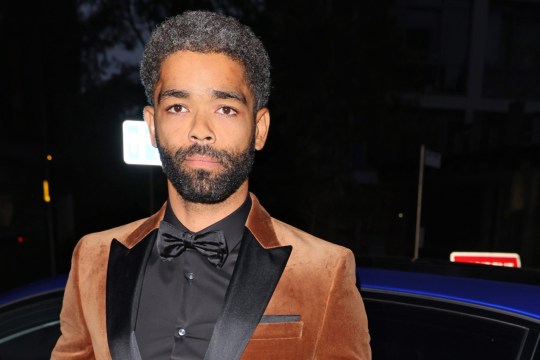
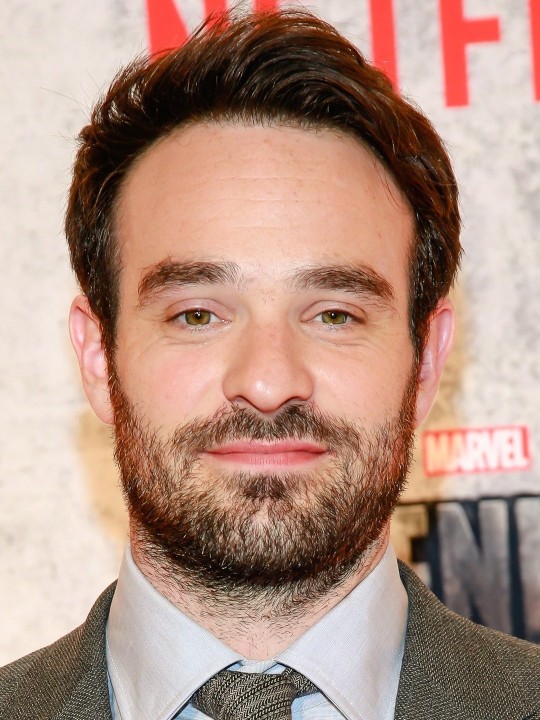
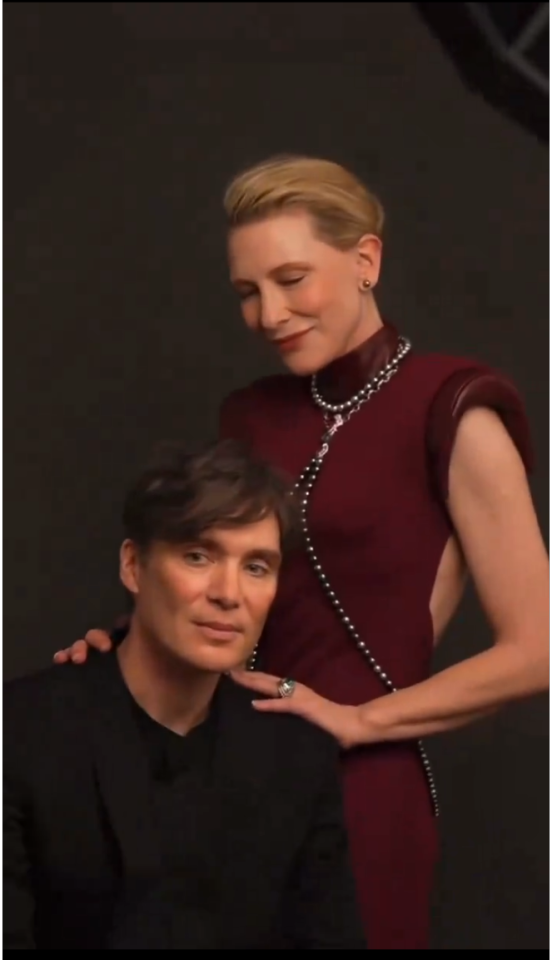
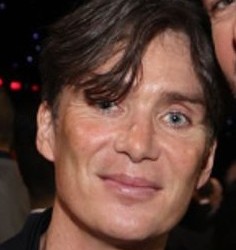

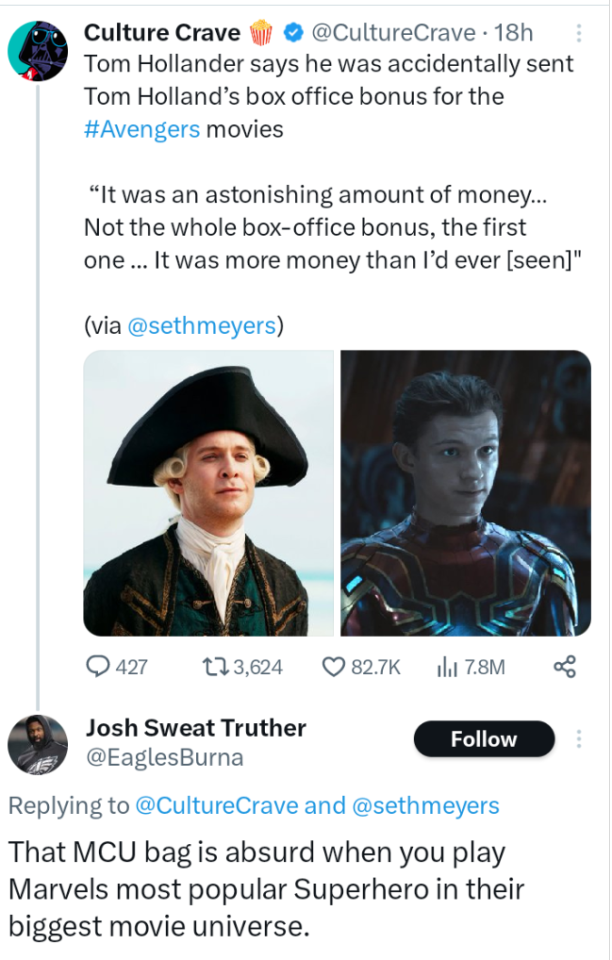
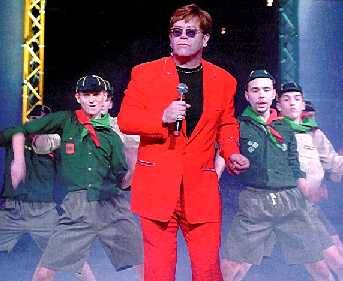
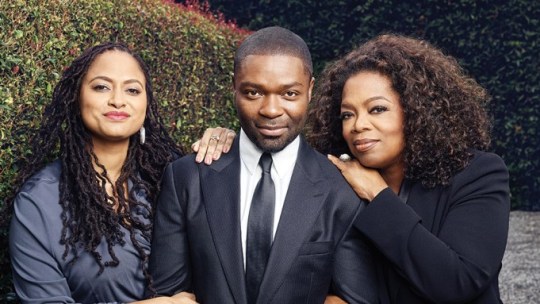
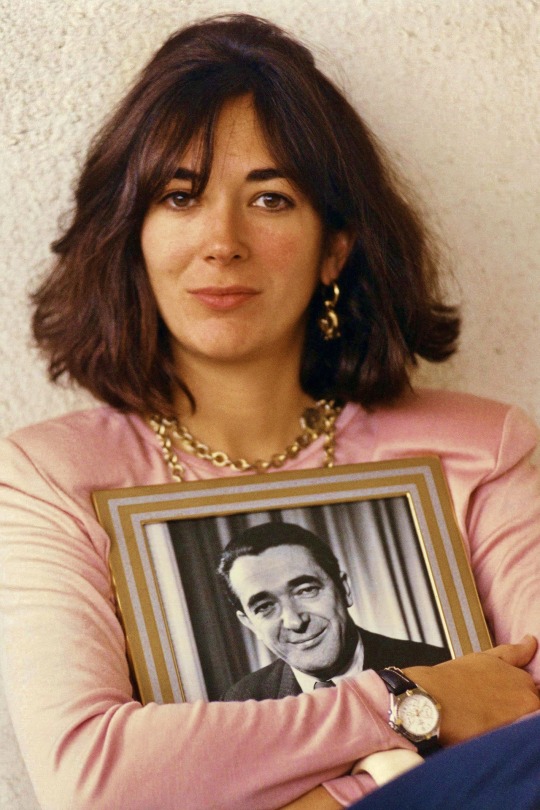
#Jamaica and The Legendary Marley Family Sell Patriarch Bob Marley Down The River For Weak Tepid White Washed One Love#Starring British Lavender Mafia Boy Kingsley Ben Adir#Irish Mob#Corrupt British Film Industry#British Thugs Allowed To Play Historic Black Figures#Malcolm X#Barack Obama#Hollywood Gay Mafia Connections#Scientology#Sony Pictures David Geffen#Warner Bros#David Zaslav#IAC#Barry Diller#Kingsley Ben Adir#David Oyelowo#Tom Hollander#Kristen Stewart#Elton John#Cillian Murphy#Stephen Fry#Mark Gatiss#Capote and The Swans Star Used In Threat Against Spiderman Star Tom Holland#British Parliament#BBC#ITV#Jamaica Compromised#Charlie Cox#Daredevil
6 notes
·
View notes
Text
Oh jealous Dec
Sidenote: I didn't realize there was such a big A&D fanbase on TikTok! If anyone wants to follow me on there I'm @mister_and_mister
32 notes
·
View notes
Text
1962 X-Men: First Class
X-Men!
A few changes for the ISC MCU version.
Moira and Hank work for S.H.I.E.L.D., not CIA. While they have been aware of powered people and mermen etc (and the dialogue should change to reflect this), they were not aware of a new type of human.
Alex Summers (Havok) is actually 15 pretending to be 18 so he can be tried and incarcerated as an adult as he thinks this is safer for everyone. Before his arrest Alex was living with his young divorcee mom (36), who went back to her maiden name, Summers. Dad disappeared.
The mutant gene can be carried or passed by either parent btw.
Angel could wear a halter neck as she does later on so she doesn't need to go topless to show them her power.
Darwin is a scientist/engineer instead of a taxi driver. And he DOESN'T DIE! He can't die, he just adapts, that's his whole thing. He eventually adapts to Havok's energy blast and survives, but is severely injured. We see his body's miraculous recovery during the training montage. OR…he just shoots Shaw back and Shaw's like…'Well, we could do this all day. Toodles.'
Moira helps the first class with fight training (except Charles, he is "not a fighter").
Must find a way to get Darwin and Angel Salvatore more involved with the plot. Give Angel some proper motivation for switching sides and some dialogue afterwards.
Recast Emma with Margot Robbie and give her more attitude and agency.
Eric does not kiss Raven as he just said she is too young for him and noted that she is just trying to get back at Hank for something. He still says that her natural form is nothing to be ashamed of, but they do not have a romantic relationship. Moira is revealed early on as a mutant and has a vast wealth of knowledge from several lifetimes. She knew she had been reincarnated but didn't know it was due to a mutation. She agrees to not go back to X-mansion so as not to give game away. And that means you can cut the '...a kiss...' line. She will be pleasantly surprised to see Charles in Apocalypse instead of mind wiped. It's best you forget about me er, us etc. adds Charles but without the mind wipe.
#mcu#marvel cinematic universe#iac#it's all connected#mutants#X-Men#charles xavier#professor x#eric lehnsherr#magneto#sebastian shaw#emma frost#azazel#riptide#moira mactaggert#raven darkholme#mystique#banshee#darwin#havok#hank mccoy#beast#angel salvadore#tempest
8 notes
·
View notes
Text
34 notes
·
View notes
Note
Vampire anon, was thinking about like being into blood, liking it and so forth. I know we won't actually be vampires, it's not IAC :)
Ah, I don't think I'll add any choices like that because it'd be too weird, but there's definitely going to be some vampire talk with a certain character in IAC. 😉
The funny thing is, the MC choices in IAC was what actually made me change the heritage traits to work like this in DDWCaPH!, hehe.
5 notes
·
View notes
Video
the-halo-3-experience™ 2
77 notes
·
View notes
Text

Happy birthday, Dec!! ❤️💙
Look at them celebrating! 🥰
#ant and dec#antony mcpartlin#declan donnelly#platonic soulmates#dec loves ant#ant loves dec#iac#dec birthday
34 notes
·
View notes
Text
oh man jensen teeing pat's ilk up to make more fools about himself by not knowing how to read his word games about the editing, this is gonna be good
"I was not aware this element was already teased, I do not control the way the product is marketed" that's what he said really means, that's WHY he had a deer in the headlights look like that. It's not that he's unaware cas is involved or whatever. He's unaware that marketing from CW/WB itself to EW to Amazon are already collectively letting the cat out of the bag. lmao
the big secret is actually that everyone knows what's going on and everybody in the back has itchy fingers right now lmao
glass closet bs, let us out
youtube
#iac#meredith#ew#wb#nbc#team peachtree#gray#not a cult#a syndicate#Youtube#atl#nola#behind the 8ball#atlanta assembly
36 notes
·
View notes
Text
Jungle Club Supercut: Part Two
#I can't believe how much time I spent on this when I have to wake up at five tomorrow#happy new year everyone!!#if I watch it again tomorrow and I hate it I'll fix it for the youtube upload#iac#ant and dec
32 notes
·
View notes
Text






jungle club - iac 2023 day fifteen
#dec did not have to go so hard on looking cozy. but he did!!!#closing his eyes#iac#iac 2023#2023#jungle club#on their socials#this was so long i had to split it into six gifs#🦊.gif
38 notes
·
View notes
Text
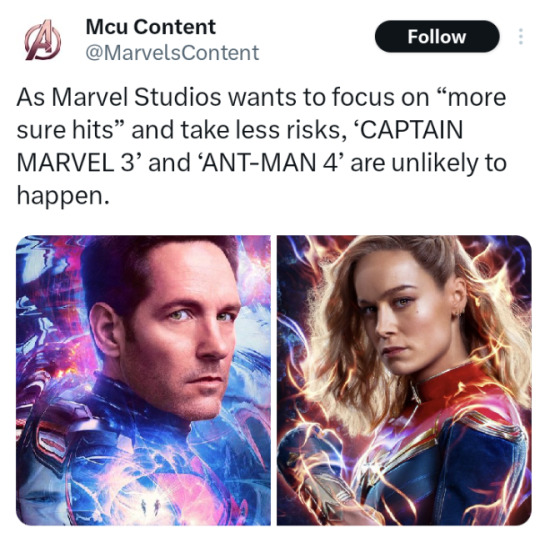

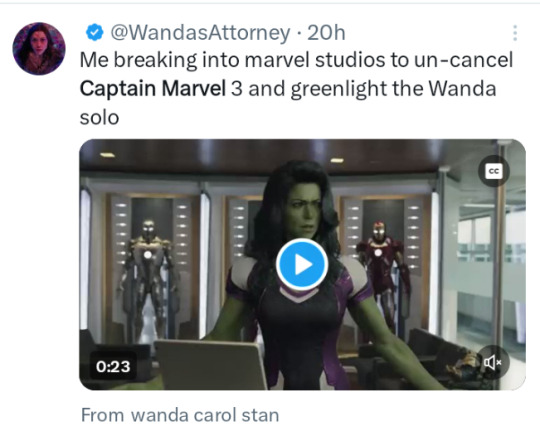
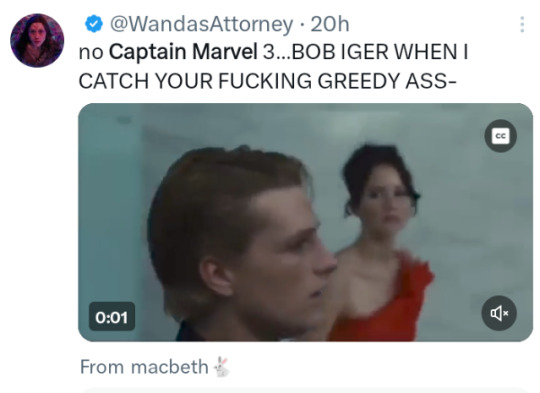
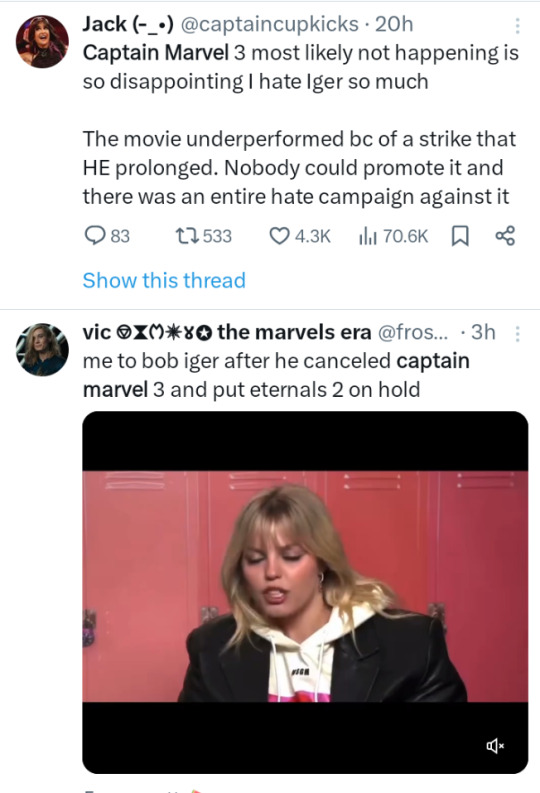
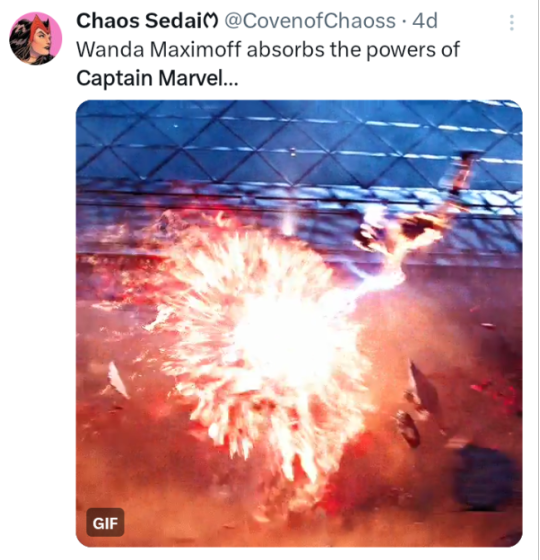

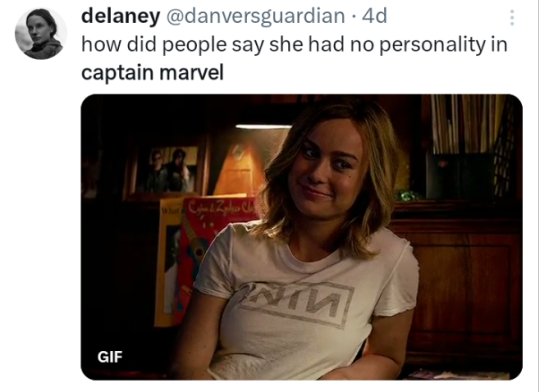
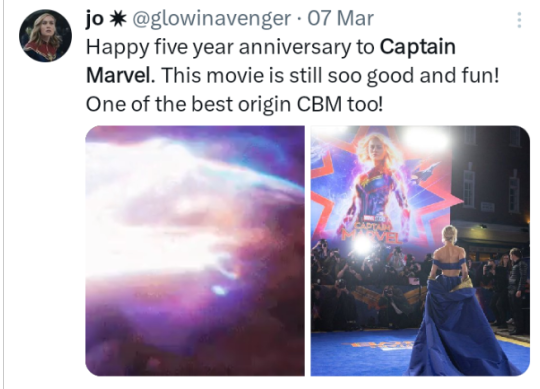

Translation: Now that we might actually lose Captain Marvel, the very same trolls (See competitors like Warner Bros Discovery, Sony Pictures and Paramount) are now whining about its demise and attempting to shame Marvel over it. I guess now that it seems the coup against the Disney board and Bob Iger is failing, these assholes are now realizing the money they could count on, for the actors they handle are drying up... because of them. Nice to finally admit that no, there was never anything wrong with the character and especially the first movie. It wasn't 'woke' as they kept screaming. It's perfectly fine to express frustration in how you're treated by the opposite sex. How many fucking Whine fests do we put up with about men who hate their mothers? About every other Ari Aster film, that's how much.
The other tell that this is coming from asshole competitors is the *YAWN!* obsession in pushing Wanda Maximoff. Better make that BRITISH ASSHOLE COMPETITORS.
#Ant Man#Captain Marvel#Disney Competitors Killed Carole Danvers#Wanda Maximoff#Elizabeth Olsen#British Lavender Mafia#Scientology#Warner Bros Discovery#Paramount Global#Sony Pictures#BBC#ITV#Ireland#China#This Might Also Kill New Avengers#Universal Puctures#IAC#Barry Diller#Ryan Seacrest#NFL#Silicon Valley Trolls#Sports Betting Blogs#John Cena
3 notes
·
View notes
Text
Ant: Nearly fell into me crotch then
Dec: I did, didn't I...wouldn't be the first time 😏
28 notes
·
View notes
Text
1957 The Blue Marvel
The movie is set on the west coast of America. That is where we first meet Adam in Agent Carter s2, so it makes sense that he and his family would settle somewhere familiar.
We open on a homeless veteran, disheveled clothes and an unshaven face, but has kept himself in shape. He is begging for money.
A young man of colour drops a coin into his cup but it phases through, landing on the sidewalk. He is confused but the vet explains it happens sometimes.
The young man is verbally abused by some racist douches. He is in the middle of sticking up for himself when the veteran intervenes. The situation gets violent causing the vet to dissociate because of his PTSD. He is in full flashback for a moment. When he comes back to himself, one of the douches is beating him up (he also has douchey views about homeless people). He reacts instinctively and strikes the man and he flies across the road, crashing into a vehicle. The driver is shaken but unharmed.
Local police take notice and chase the veteran and the innocent man, who run together initially. The young man is angry because he felt he had it under control. The vet then draws attention away from the young man and manages to get the police to pursue him instead, then disappears after rounding a corner.
Cut to a family scene at the Brashear’s new home. Adam Brashear, Marlene, now Adam's wife, and their young son Kevin are still trying to come to terms with civilian life after Adam was told to stop superheroing by the President. Marlene has changed her name to Candace to hide that she is ex-S.H.I.E.L.D., but has a good fake CV which includes telephone exchange operator and talent agent. So she is quite employable whereas no one will touch Adam with a barge pole except for offers to be a super-mercenary, which would mean he was breaking the law.
She is therefore the sole wage earner and Adam stays home to look after Kevin. They are both frustrated because they know they could be doing more, but the family unit is a happy one nonetheless. Trying to do the right thing no matter the cost.
Peggy Carter, director of S.H.I.E.L.D. makes an official visit as she has volunteered as Adam's ‘handler’ to ‘make sure’ he isn't superheroing. They joke about whether he is superheroing, chat about family life and Peggy coos over the baby. While she is doing this she writes a note to say their place is bugged. Candace had figured as much. She gives them each a tiny in-ear communicator, newly invented by Howard Stark. She then takes her leave.
She leaves Adam changing Kevin's diaper and Candace reading a magazine, whilst they secretly await instructions. After she is safely on her way she communicates the incident with the homeless veteran, the young man and the racist thugs. Adam can respond to some of it as he can pretend he is talking to the baby. Candace will respond while pretending she is fascinated by what's in the magazine.
Peggy goes on to say that S.H.I.E.L.D. examined the thug and found traces of zero matter on him. She adds that the veteran was reported to have ‘simply disappeared’.
When Adam comes back he sees that Candace has written ‘Conner?’ on the bottom Peggy's note. He silently concurs.
Peggy tells him there will be an advert in the paper tomorrow for a factory worker and that Adam should come for an interview.
In this “Interview” Peggy and Howard make an agreement that Candace will search for Conner in communication with Peggy while Adam and Howard try to recreate the machine that cured Adam of his intangibility back in Agent Carter s2.
Both teams succeed in their task. Candace and Peggy locate Conner and convince him to come in peaceably when they mention Adam’s name. They bring him in and Adam and Howard stabilise him. They theorise that further treatments may cure his intangibility.
Seemingly more stable now, a freshened up Conner goes out for a walk with Adam and Candace. Conner wants to superhero with him and is very angry about the racist Presidential edict. A racist incident on the street towards Adam and his family causes Conner to flip out and accidentally disintegrate a guy.
Police arrive quickly on the scene while Adam is trying to talk him down. However, Adam is arrested for it after Conner disappears.
Conner reappears and goes ape when he finds out what happened to Adam as it wasn’t his fault and destroys the police station, freeing Adam but killing, maiming or hurting many. Conner tells Adam that they can stop this, end racism, make the world a more equitable place. Adam asks how many lives that would cost and knows it wouldn’t achieve Conner’s aims anyway. This leads to their first battle. People see the return of the Blue Marvel and see that he is trying to stop this destructive character.
Conner disappears again. Adam is now a fugitive too.
Conner tries to make up for his mistakes and tries to superhero but he is starting to become unstable again and needs more treatment, but is stressed and fuelled by guilt. Every time he uses his power more zero matter damage is caused. Adam manages to track Conner down with Candace and a Howard gizmo, but realises he is unwittingly causing a zero matter singularity to emerge putting the city in danger and possibly the state and beyond if it can’t be controlled. It is starting to pull things into the dark dimension as it is essentially a wormhole between the two.
He warns Conner, but Conner wonders if it would be such a bad thing if the human race was wiped out, reasoning that people are the problem with the world. Adam tries to talk him down while they battle. But as the fight goes on Conner’s readings show that it is too late to cure him and he will explode and the singularity will continue to grow.
As per Adam: Legend of the Blue Marvel;
"if i can sync with his energy and release a large enough positive plasma charge I might be able to initiate a chain reaction causing him to implode.”
The gang realise that Adam's plan could well work, but may cause a large antimatter explosion. Adam and Candace revisit doing the right thing no matter the cost. He takes Conner out of earth's atmosphere and he implodes, ending the Dark Dimension singularity. Everyone thinks the Blue Marvel died in heroic sacrifice, but S.H.I.E.L.D.’s advanced tracking equipment shows that he is re-entering the atmosphere. They allow the world to go on thinking he died (“Anti-man defeated by Blue Marvel sacrifice!” scream the headlines).
S.H.I.E.L.D. do get reprimanded for ignoring the Presidential edict but the White House accepts there were mitigating circumstances.
Adam returns and the Brashears realise they will have to live their lives on the run. They are sorry that their son won't have much of a life, but are glad they can go back to making a difference (covertly, of course).
Post credits:- Namor shows the Brashears to their new underwater base. It was called in as a favour by Peggy and the Talokanil were happy to build it for him as a thank you for his help at the Battle of Wakanda. Namor questions why he doesn't ignore the disrespectful edict and use his powers to rule the surface world. Adam and Candace explain that they have a calling to do the right thing, no matter the cost, to help those that cannot help themselves.
Namor concedes that he would do the same for his people.
We end as they check out the (secretly) provided S.H.I.E.L.D. equipment that will allow them to monitor world events.
There will be rumours of The Blue Marvel helping those in need for years to come.
#mcu#marvel cinematic universe#iac#it's all connected#marvel#Adam Brashear#The Blue Marvel#Blue Marvel#Candace Brashear#Conner Sims#Anti-Man#Peggy Carter#Director Carter#Howard Stark#s.h.i.e.l.d.
3 notes
·
View notes
Text

@niallerlover thank you so so much! Youre so sweet! I can definitely keep it Louis and i already started it so i could reblog chapter 1 if youre interested? Thanks love it means a lot to me 😊❤️
3 notes
·
View notes